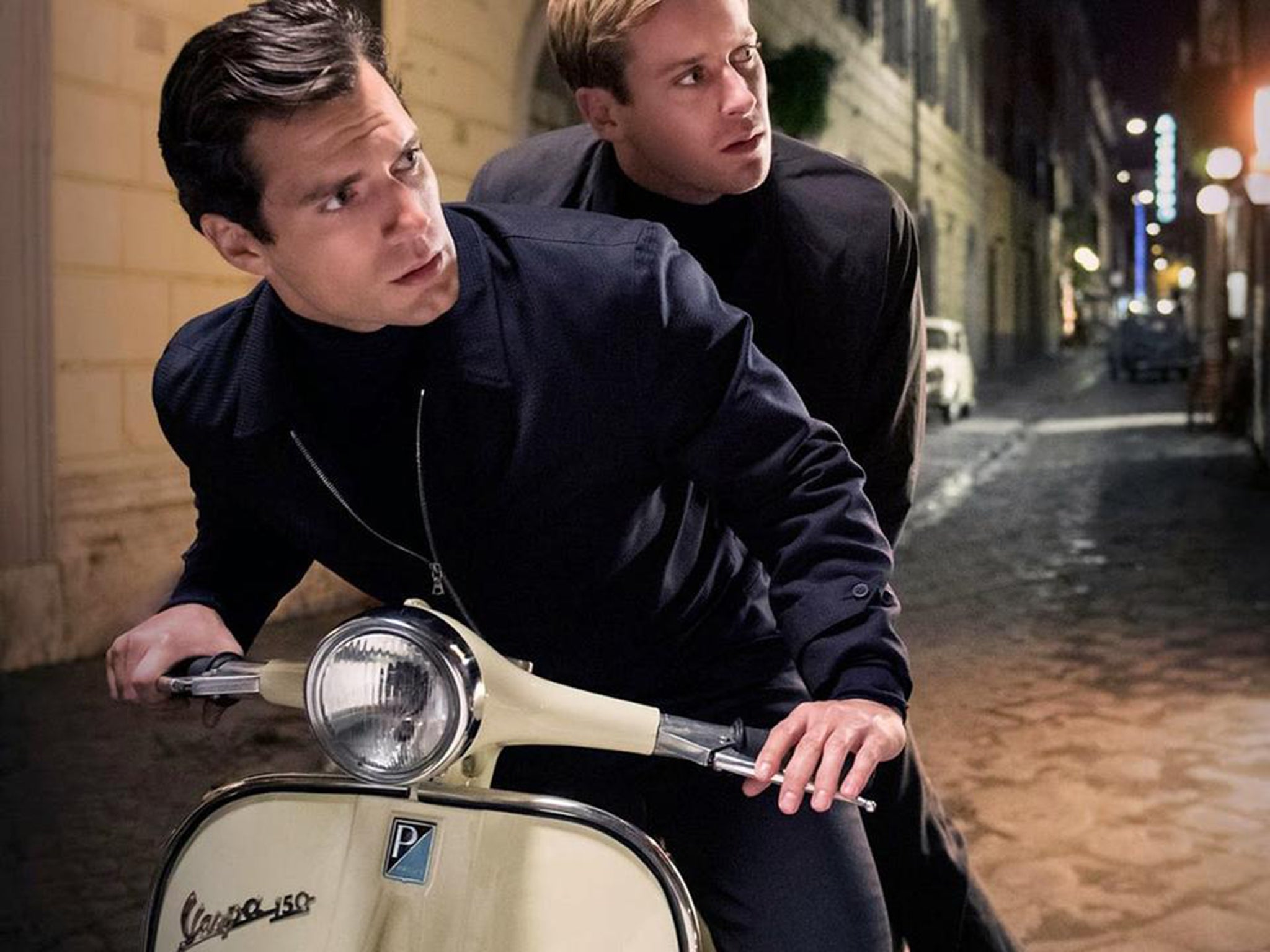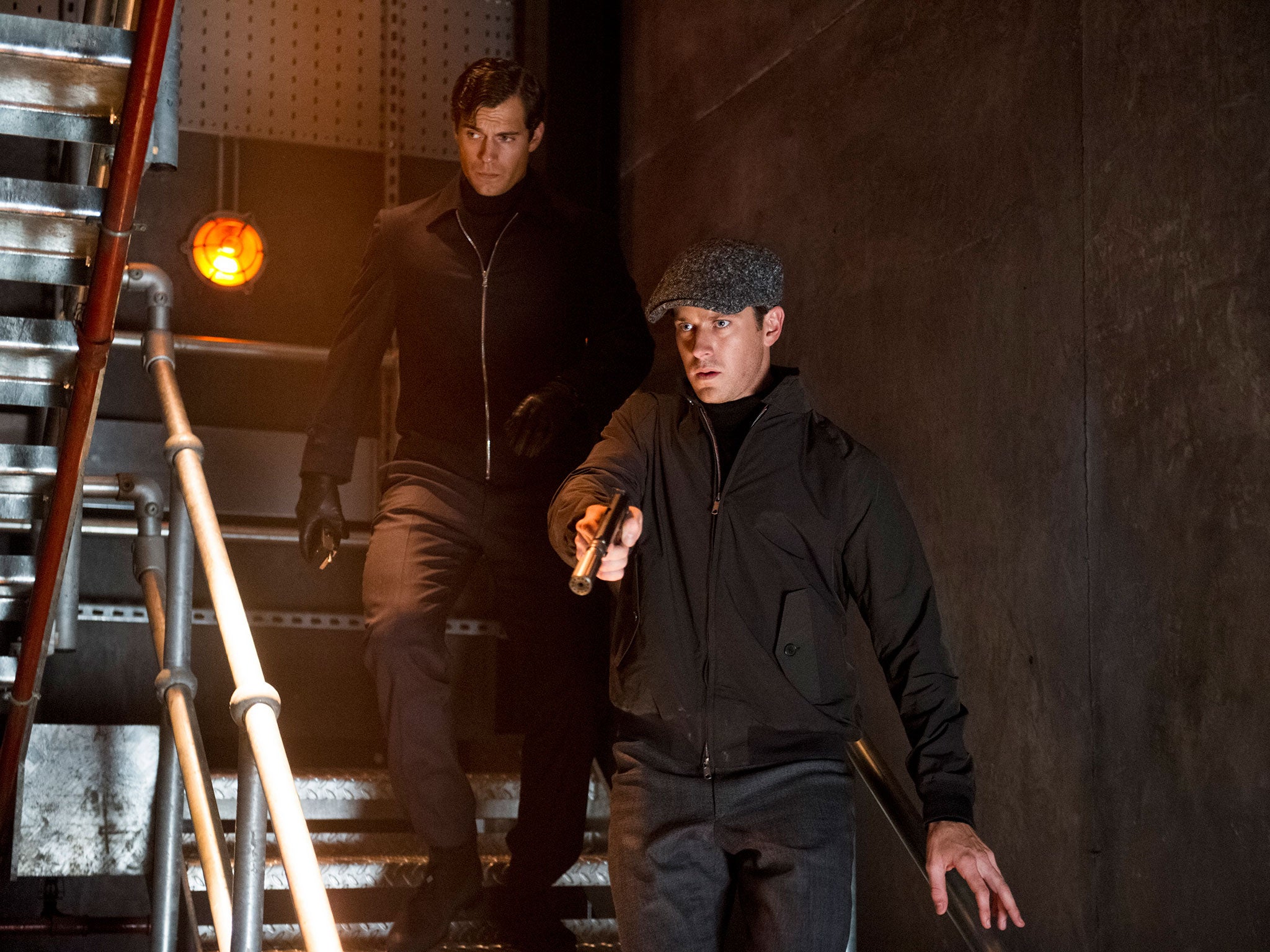The Man From U.N.C.L.E., film review: Lightweight but stylish in a high-kitsch fashion
(12A) Guy Ritchie, 116 mins. Starring: Henry Cavill, Arnie Hammer, Hugh Grant, Alicia Vikander

Guy Ritchie's new feature version of The Man from U.N.C.L.E, adapted from the 1960s TV spy series, is lightweight but stylish and enjoyable in a high-kitsch fashion.
The betting has come down on Henry Cavill being cast as the next Bond. The film should certainly help as part of his audition reel. He is very dapper and dashing as Napoleon Solo, dressed like Thunderball-era Sean Connery in immaculate suits, and extravagantly polite, even at moments of the most extreme danger. Arnie Hammer is gruffer and more laconic as Solo's Russian sidekick, KGB agent, Illya Kuryakin. The two are first seen as fierce antagonists but are soon forced to work together.
The film feels very British although one main character is American (albeit played by an English actor), the other Russian, and the beautiful heroine (Alicia Vikander) is a car mechanic from East Berlin. (Her father is a brilliant scientist who knows how to build atom bombs and her uncle Rudi is a die-hard Nazi.) The British ambience is reinforced by the presence of Hugh Grant as the spy boss, saying "well done chaps" to Solo and Kuryakin on the rare occasions when they follow orders. As the villainess, Elizabeth Debicki looks and behaves like a more sinister version of Lady Penelope in Thunderbirds.
All the characters here are very much better spoken than those in the geezer-gangster movies Ritchie used to make at the start of his career. This is a Vinnie Jones-free zone. There is no mockney here.

The setting may be the early 1960s but any ideological tension in the Cold War has been strained out. The differences between East and West are more to do with fashion, gadgetry and approaches to courtship than with politics. The tone of the film is relentlessly cheery, touching on the facetious, even though the plot involves deadly weapons that could blow up humanity. There isn't a huge amount of chemistry between Cavill and Hammer as the ideologically opposed spies are forced to work together. The film's trump card is its carefree mixture of zest and stylishness.
Join our commenting forum
Join thought-provoking conversations, follow other Independent readers and see their replies
Comments